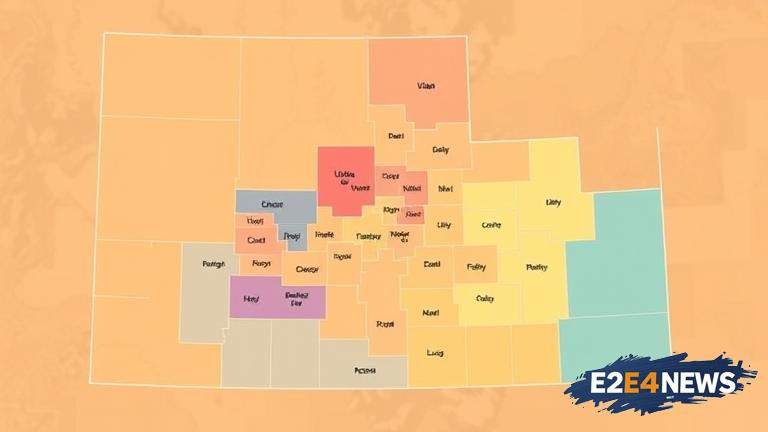In a landmark decision, a federal judge has ordered the state of Utah to redraw its congressional map for the 2026 elections. The ruling comes after a lengthy court battle, with plaintiffs arguing that the current map is a result of partisan gerrymandering and unfairly favors one party over the other. The judge agreed, stating that the map violates the constitutional principle of one person, one vote. The current map has been in place since 2020 and was drawn by the Republican-controlled state legislature. However, the judge found that the map was designed to give Republicans an unfair advantage in the state’s four congressional districts. The ruling is a significant victory for Democrats and voting rights groups, who have long argued that the map is unfair and disenfranchises certain voters. The judge’s decision is also a blow to Republicans, who had argued that the map was fair and compliant with federal law. The ruling will require the state legislature to redraw the map, which will likely lead to a more competitive electoral landscape in Utah. The new map will need to be in place by the 2026 elections, giving candidates and voters time to adjust to the new boundaries. The decision is also likely to have implications for other states, as it sets a precedent for how courts should evaluate partisan gerrymandering claims. The ruling is a reminder that the redistricting process is a critical component of American democracy, and that courts will not hesitate to intervene when maps are found to be unfair. The case has been closely watched by voting rights groups and politicians across the country, who are eager to see how the ruling will impact the balance of power in Congress. The judge’s decision is a testament to the importance of an independent judiciary in ensuring that the democratic process is fair and representative of the people. The ruling is also a reminder that the fight against partisan gerrymandering is ongoing, and that advocates will continue to push for fair and representative maps. In Utah, the ruling will likely lead to a more competitive electoral landscape, with Democrats hoping to pick up seats in the state’s congressional delegation. The state’s Republican lawmakers have vowed to appeal the decision, but it is unclear whether they will be successful. The ruling is a significant development in the ongoing debate over partisan gerrymandering, and is likely to have far-reaching implications for the future of American democracy. The decision is also a reminder that the redistricting process is a complex and contentious issue, with different stakeholders having competing interests and priorities. As the state of Utah moves forward with redrawing its congressional map, it will be important to ensure that the process is transparent and inclusive, and that the new map is fair and representative of the state’s diverse population. The ruling is a major victory for voting rights groups, who have been fighting against partisan gerrymandering for years. The decision is also a reminder that the courts play a critical role in ensuring that the democratic process is fair and representative of the people. The case has been closely watched by politicians and voting rights groups across the country, who are eager to see how the ruling will impact the balance of power in Congress. The judge’s decision is a testament to the importance of an independent judiciary in ensuring that the democratic process is fair and representative of the people.
